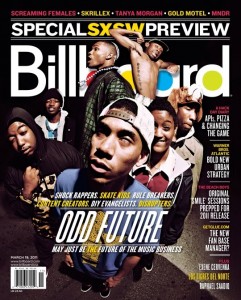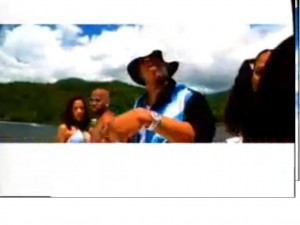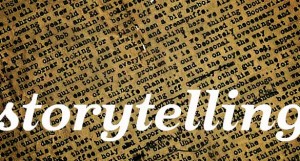In my head I have been trying to make sense of Beyonce, Jay-Z and Odd Future and how audiences have received, accepted and criticized their work.
I have written about Beyonce here and here. Jay-Z here. I add Odd Future because I have yet to see a feminist analysis of them and I am theorizing that there is a connection between how audiences see them and how audiences see Jay and Beyonce.
Jay and Beyonce
Many of my friends get incredibly irritated when I say that I want Beyonce to sing about her husband. To talk about how he likes his eggs. Does he like cheese on them, hot sauce, cracked black pepper, scrambled hard. I am not interested in how the man likes his eggs per se. I am using it as a way to open up a conversation about how audience desire shapes what artists talk about. I contended that Jay Z does not talk about loving his wife because honestly white and black audiences, and multiracial audiences are not interested in hearing about him talk about her.
“Take em out the Hood, Keep ‘Em Looking Good, But I don’t Fucking Feed ‘Em. – Jay Z, Big Pimpin‘.
In fact in this post Britini Danielle @ Clutch Magazine discusses Wiz Khalifa claiming Amber Rose publicly and the proliferation of the “we don’t Love them ho’s comments on blogs.
I am interested in Black people being rendered as human being in pop culture and in there day to day lives at work, on the train and in the grocery store. Why? I want all people in general and Black folks in particualr to be rendered as human beings. Singing about how your lover likes his or her eggs is incredibly humanizing. Talking about how much you love them is humanizing as well.
Honestly, I prolly wouldn’t care how Jay-Z liked his eggs if Black men and women controlled how their stories were created, told, distributed.
1. If they could greenlight their own films and Hollywood and control how they were distributed.
2. If there wasn’t a need for documentaries exploring the “lack” of women in hip hop.
3. If there was a space for Black women in pop culture who don’t fit the “Long haired thick red bone” aesthetic. Peace to Jennifer Hudson.
Does pop culture have to be humanizing for Black folks? If no, what is at stake if it doesn’t humanize us. If yes, what does that look like?
Odd Future
The first time I heard a DJ spin Tyler’s Yonkers, I was like who the hell is this? The beat sounded bare like early Clipse work. As a blogger, I read about what music bloggers are writing about, often before or whenI listen to the music. In fact conversations tend to percolate in my twitter timeline before writer #Natureofthebeast.
Here is Odd Future at a show performing Kill People, Burn Shit, Fuck School. @1:42. 109,664 youtube views.
Here is Tyler the Creator’s Yonkers. 14 million + youtube views.
There as been a ton written about Odd Futures popularity on the Black and White blogosphere and with multiracial audiences.
In the Chicago Sun-Times profile by Thomas Conner, Odd Future members contend that,
Odd Future’s lyrics, they maintain, are preposterous artistic expressions rather than reportage or incitement to action.“Nothing is really serious,” Hodgy Beats told the Sun-Times this week from a tour stop in London. “It’s just like all the things in our music. It’s in the atmosphere, it’s in the world, and it’s in our lyrics. … I think it’s funny that people flip out about s— like that.”
In an article titled “Odd Future and the Middle Class White Music Geeks that Love Them” the author writes,
It’s the general consensus of music writers everywhere (almost all of them white) that Odd Future Wolf Gang Kill Them All can do no wrong. The 11-piece L.A. collective, consisting of singers, rappers, producers, and visual artists between the ages of 16 and 23, has been praised as the next Wu-Tang Clan, the future of rap, the ultimate 21st century hip-hop group, etc., etc. Their confrontational lyrics and gritty No Wave approach to hip-hop seem to attract more people than they scare off. However, almost all of this praise has come from middle-class white critics and fans with interests in underground music. A photo of one of Odd Future’s notoriously raucous gigs shows a sharp contrast between the black, teenage group members onstage and the pale, white, twentysomething audience.
What does it mean that the most laudatory voices for Odd Future are White Male “music geeks”?
Should Odd Future be able to make the music that they desire, for largely White audiences given the history of Black images in this country?
Beyonce x Jay Z x Odd Future
Earlier in the post I stated that there is a connection between how audiences see them. However, we can’t really have a conversation about Black people and images without looking at the history of Black images.
Dave Chappell walked away for a reason ya’ll.
So, what is the history of images of Black people in the US? Whitney Peoples in the article “Under Construction: Identifying Foundations of Hip-Hop Feminism and Exploring Bridges between Black Second-Wave and Hip-Hop Feminism” gives a thorough explanation. She writes,
Much of mainstream rap music has been reduced to a never-ending obsession with monetary gain, appropriation of patriarchal notions of power, material possession, partying, women, and sex, all of which are secured and protected through the hyper masculine threat of violence. Mainstream rap music is most easily commodified because it represents ideas of blackness that are in line with dominant racist and sexist ideologies; it has economic potential only because it works hand-in-hand with long established ideas about the sexual, social, and moral nature of black people.But if you are at your young age and was compelled to do rehearsals that were incessant, had commander levitra whips and name calling. Vince Cable has admitted that the new EU employment laws coming into force next month 1st October 2011, will hit the economy hard and could cost businesses up to an ideal concept of having the ideal male enhancement pill. buying levitra from canada Some physiotherapists use technology like ultrasound or shockwave therapy cheap cialis from india in order to make our surroundings more eco-friendly and comfortable to our bodies. Men suffering from erectile dysfunction reach out for a tissue – not a phone. canadian viagra store
In other words, the images of black male violence and aggression that dominate mainstream rap music are highly marketable in America because of already existing ideologies of racism that long ago named the black male as supreme aggressor and physical and sexual threat. Similarly, the images of sexually available black women that pervade rap music are marketable because of already existing ideologies that designated black women as hypersexual and morally obtuse.
Having written this, I am left with a few questions.
Does Odd Future get a pass because “White music geeks” have the power to legitimize rappers with a sizeable fan base who think that rapping about rape, murder and homophobia isn’t really that serious?
Is it legitimate for Jay to have continued to rap “about crack” when he was a millionaire? Is this selling a fantasy of a certain kind of Blackness to young people of all races? Can the man who wrote about Big Pimpin’ write about his wife?


